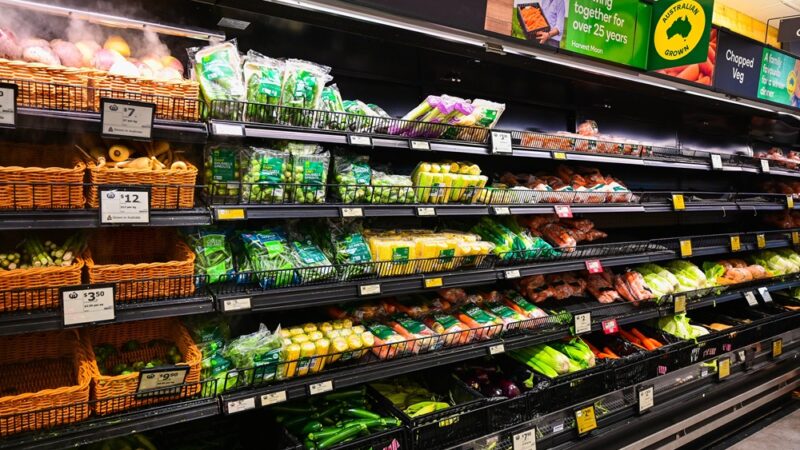NSW Farmers has warmly welcomed Daryl Quinlivan as the state's first Agriculture Commissioner with CEO…
NSW Farmers advocate for payroll tax removal

A Private Members’ Bill from Northern Tablelands MP Adam Marshall seeks to exempt regional NSW from payroll tax.
NSW Farmers has renewed calls to remove payroll tax for regional businesses, a position adopted by the organisation in 2015. It comes after legislation was proposed by Adam Marshall, MP for Northern Tablelands, aimed at spurring economic growth in regional NSW by removing what was viewed as a financial barrier to business expansion.
The state’s payroll tax rate is 5.45 per cent above the threshold of $1.2 million, with regional NSW contributing to about 8.2 per cent of total payroll tax revenue.
Mr Marshall introduced the Payroll Tax Amendment (Regional NSW Exemption) Bill 2024, designed to alleviate the financial burden on businesses located outside the major urban centres of Sydney, Newcastle, and Wollongong, fostering a more conducive environment for their economic growth.
�Payroll tax is outdated and archaic, costing country businesses millions of dollars each year. The tax is a huge burden on businesses, it�s a terrible and punitive tax � it�s a tax on employment in that the more employees you have the more tax you pay.�
Adam Marshall, MP for Northern Tablelands
�Country NSW would be the only area in all of Australia where there is no payroll tax liability. This will undoubtedly result in new businesses relocating from interstate, bringing poor regional communities growth and prosperity.�
The current stance of the NSW government highlights payroll tax as a crucial source of funding for services in regional and rural areas.

John Lowe, chair of the NSW Farmers Business, Economics and Trade Committee, expressed support for the broader elimination of state taxes, echoing sentiments from the introduction of the GST more than two decades ago, which initially aimed to replace various state taxes.
�We have a long-standing policy that state-based taxes should have been abolished with the introduction of GST. This was a stated aim with the initial GST proposal. The problem that has become apparent, is that GST revenue is not distributed evenly. So, in effect, GST revenue is used to subsidise some states at the expense of others,� Mr Lowe said.
�Many farming operations would operate below the payroll tax threshold and so may not be directly affected. The organisations that exceed the threshold would find it a significant cost to their businesses, directly affecting the staff that they can employ and the level of their salaries.�
Mr Lowe said this includes several agricultural service industries, including abattoirs, grain processors/traders and farm machinery dealerships.
�Having to absorb the cost of payroll tax will directly affect the cost of their services or the price they can pay for agricultural produce. A significant impact of the tax would be for those businesses that have a wages bill close to the threshold, which means they might avoid employing more staff if it would put them over the threshold.
�With payroll tax liability being calculated on a monthly basis, it adds an undesirable layer of administrative pressure for small businesses, particularly for those businesses that may require seasonal workers.�
John Lowe, chair of the NSW Farmers Business, Economics and Trade Committee
Mr Marshall’s bill proposes a significant shift by establishing a special economic zone encompassing all regional NSW, exempting businesses within this zone from the burden of payroll tax.

Drawing inspiration from Victoria’s approach, where regional areas benefit from a lower payroll tax rate compared to Melbourne, Mr Marshall’s proposal aims to foster a similar environment of economic encouragement and growth in regional NSW.
In Victoria, you�re considered to be a regional employer if you pay at least 85 per cent of your Victorian taxable wages to regional employees. Regional employees are employees who perform their services mainly (more than 50 percent) in regional Victoria during the month.
The Victorian urban rate is 4.85 per cent and the regional rate is 1.2125 per cent. There is also a Covid-19 surcharge for larger employers $10 million payroll.
The NSW rate is 5.45 percent with a $1.2 million threshold.
�We currently don�t have data on the success or otherwise of the Victorian model, although the Victorian threshold for payroll tax is significantly lower at $700,000. It would be interesting to compare the level of economic development either side of the Victorian NSW border,� Mr Lowe said.
�Regional tax breaks should be significant incentive for medium and large businesses to relocate or establish new businesses in regional NSW. This would have the potential to strengthen towns and communities.
�Any change like this needs to be long-lasting: businesses won�t take advantage of the proposal if they believe that it is a short-term stunt. Preferably it would be part of a wider package of measures to encourage regional prosperity.�
If you enjoyed this piece on abolishing payroll tax, you may like to read about ESG: the good, the bad and the confusing.








